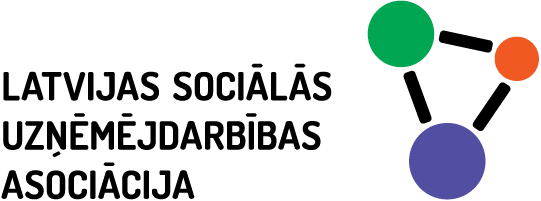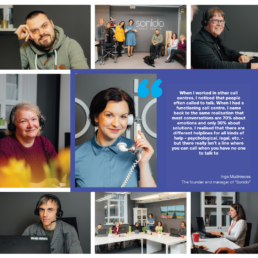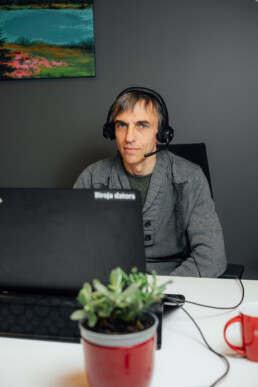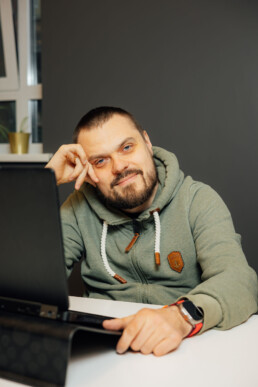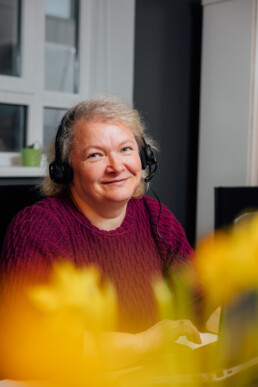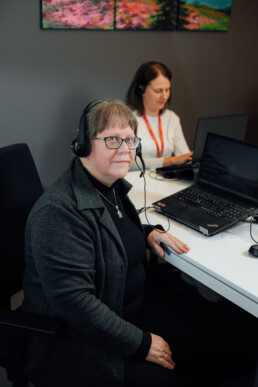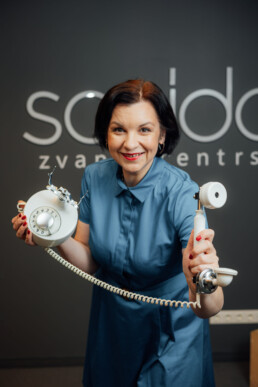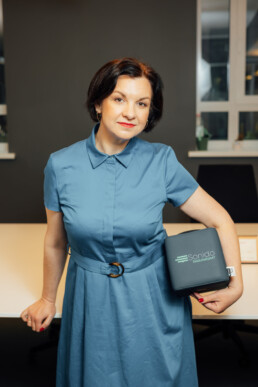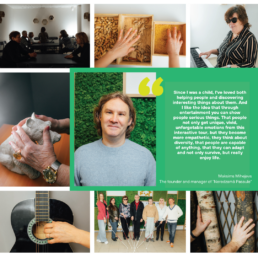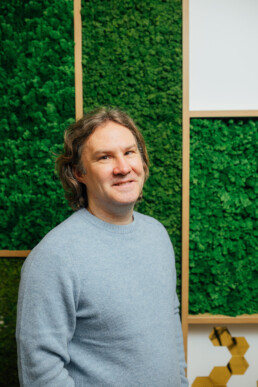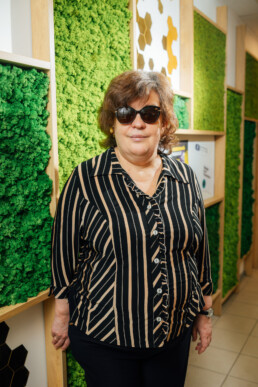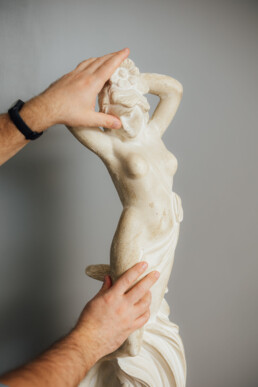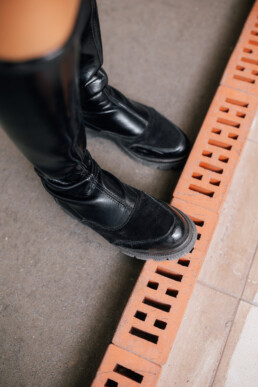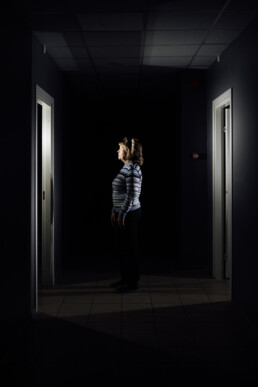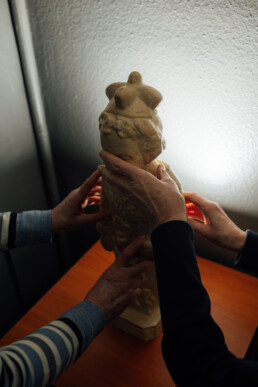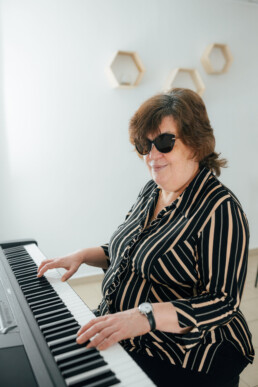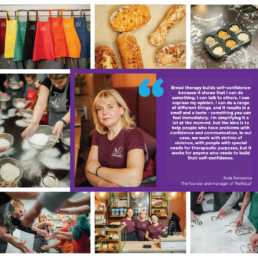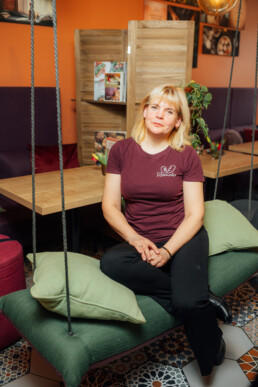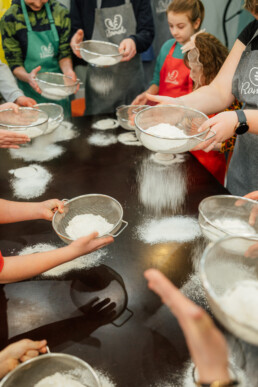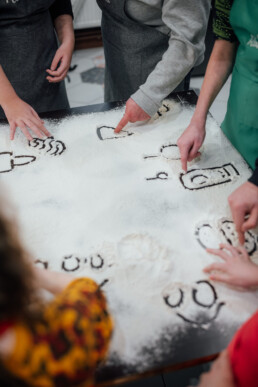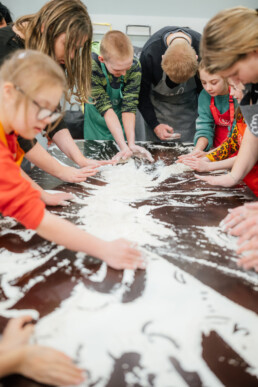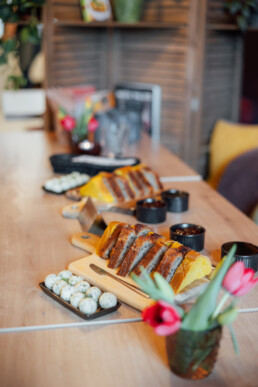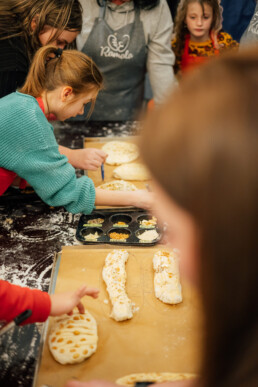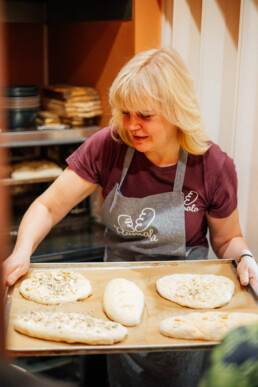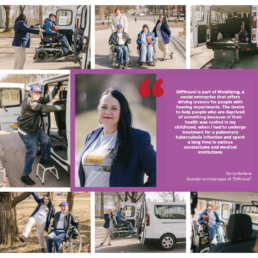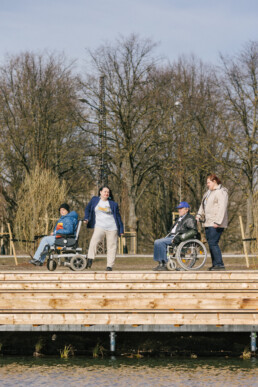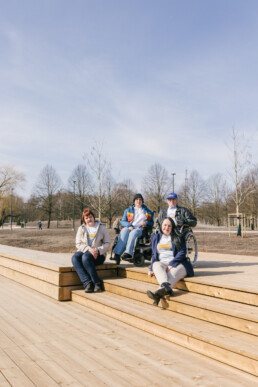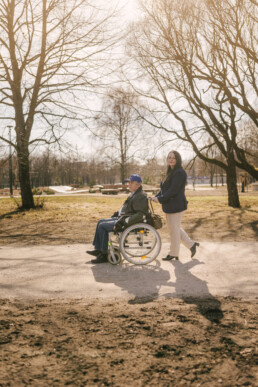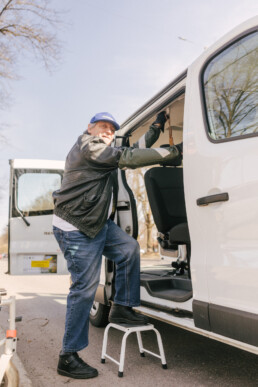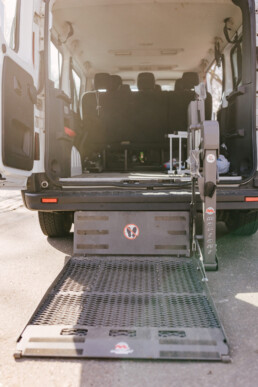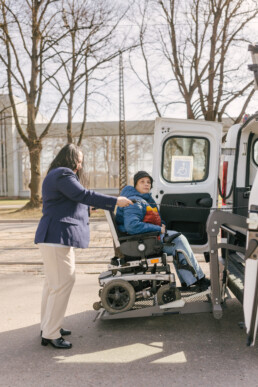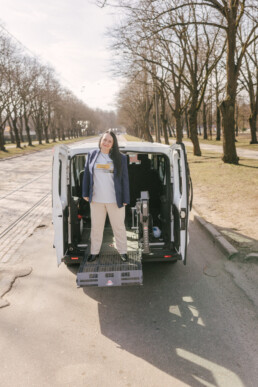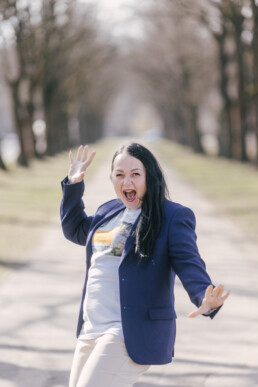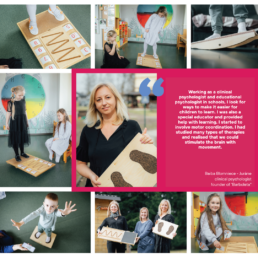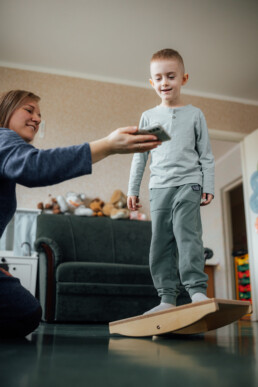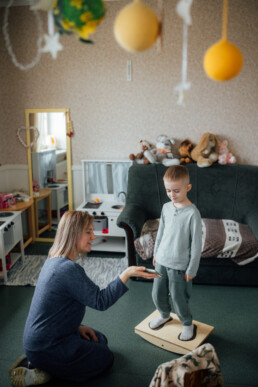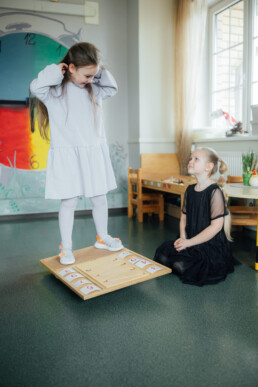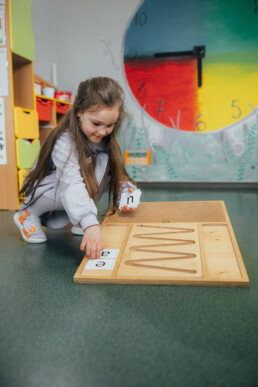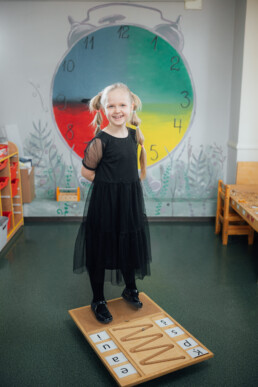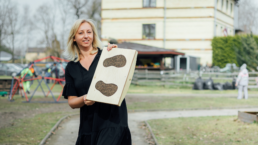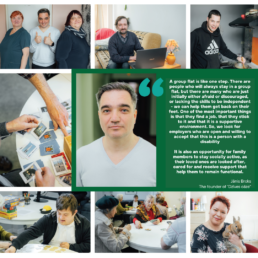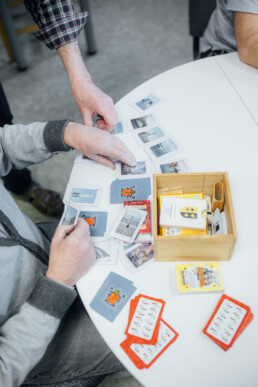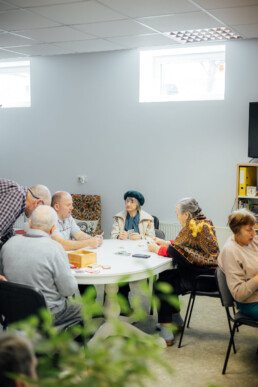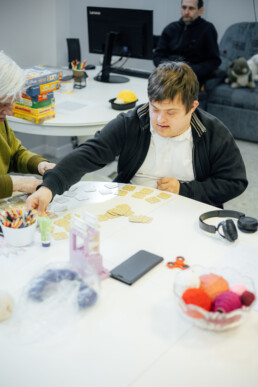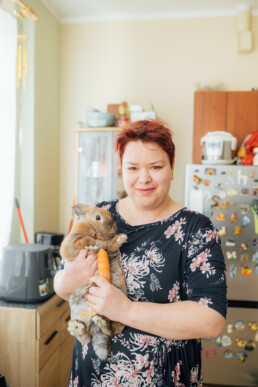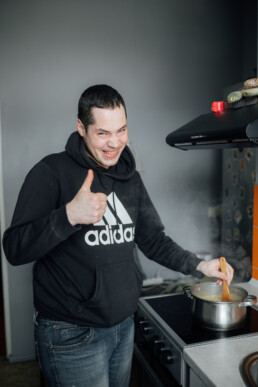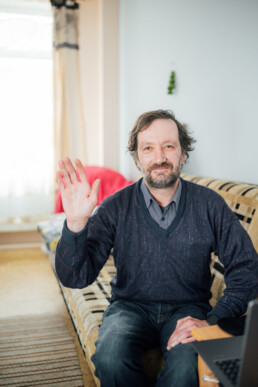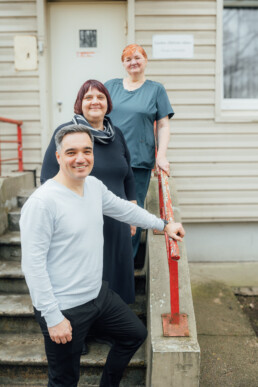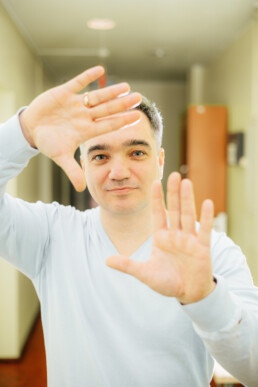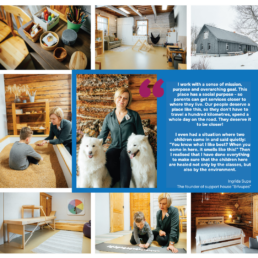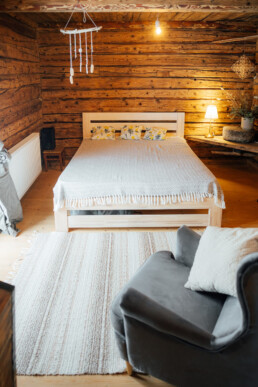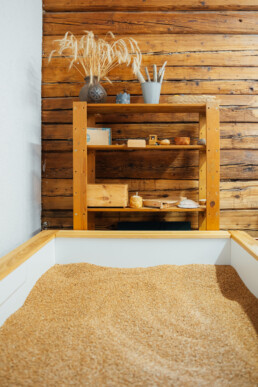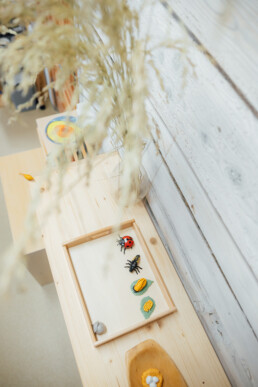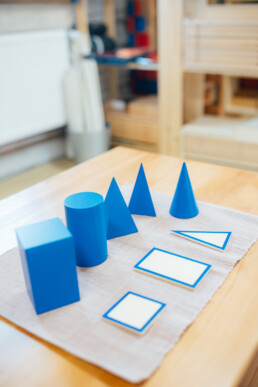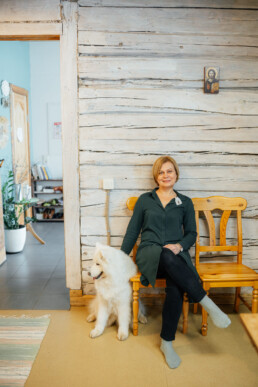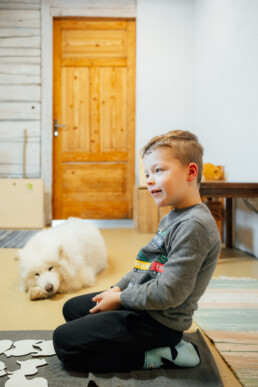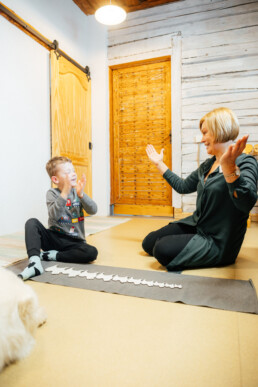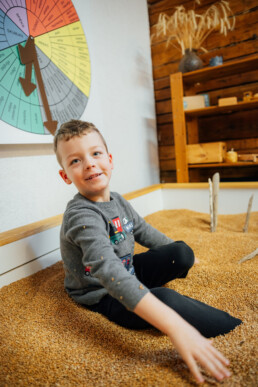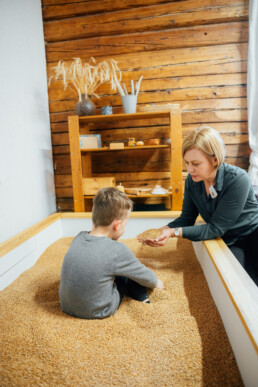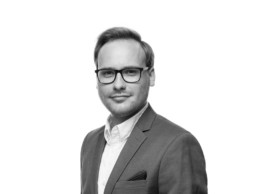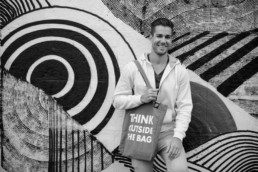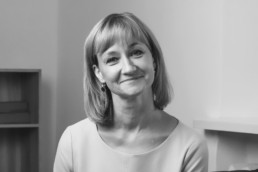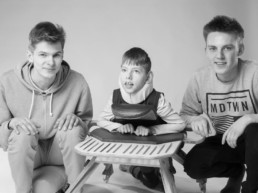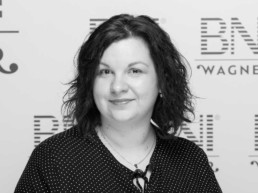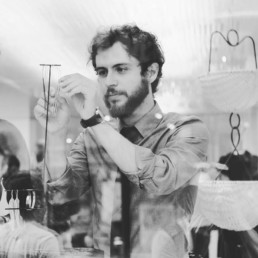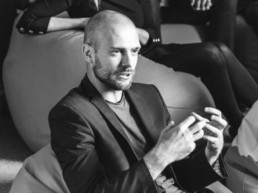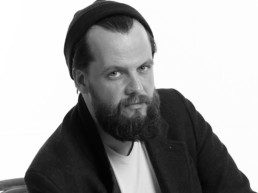Social enterprise "Sonido"
Call centre “Sonido”, Riga, Kekava
Provides a wide range of call centre services for businesses in any sector, employing people at risk of social exclusion. The profits from the business fund the social project “Let’s Talk” – a phone line to reduce loneliness for those who feel alone and want to talk. Calls are received in Latvian, Russian, English and sign language.
Mūkusalas iela 41, Riga, LV-1050
+371 66047240
Nowadays, there is a growing demand for socially responsible entrepreneurship, and social enterprise “Sonido” is an example of how providing a professional service can be a way to make a profit, support socially at-risk groups and contribute to society at the same time. The main activity for “Sonido” is a call centre that provides a wide range of high-quality services for businesses in any sector. Besides that, the company employs people with disabilities, providing special adjustments to the workplace and training for employees as well as runs the social project “Let’s Talk” alongside its day-to-day work.
“The dream of creating a business is to say too much – I would say I had no choice but to make money and be my own boss! And I see the approach to making calls, telemarketing and handling incoming calls differently than other companies – that was my advantage,” says the founder Inga Muižniece when talking about how she started her own business.
During the work in different places, Inga realised that she could not and did not want to work under the supervision of other bosses: “Without much consideration at my last job, I said – I’m going to prove you – I’ll start a company and I will be successful! Then I went out and realised – I don’t have any entrepreneur friends, I don’t know how to make a business, I don’t have any money.” She managed to find a business partner, but the first two years were difficult – Inga had no idea where to start. Joining BNI, or Bussines networking international, an organisation that brings together different entrepreneurs helped a lot. Gradually, contacts were made, the client base expanded and, as the company stabilised, Inga came up with an idea she had already thought of – to set up a phone line where people could call just to talk, express their worries and be listened to.
“When I worked in other call centres, I noticed that people often called to talk. When I had a functioning call centre, I came back to the same realisation that most conversations are 70% about emotions and only 30% about solutions. I realised that there are different helplines for all kinds of help – psychological, legal, etc. – but there really isn’t a line where you can call when you have no one to talk to,” says Inga Muižniece.
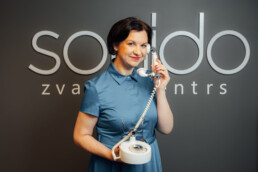
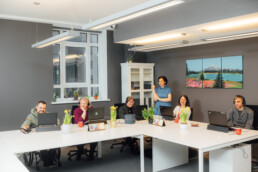
Being active at BNI taught Inga that ideas need to be spoken out loud, because someone might already know the easiest way to make them happen. “And that’s what I started to do – I said I wanted to make a phone where people could call to talk, but I didn’t have the money. Where do I get the money? I just put my thoughts out into space and hoped that maybe it would catch on somewhere.” Zita Baranova heard Inga’s idea – she told her about social entrepreneurship, wrote her first project for support and the helpline was operational from 1 September 2018.
It was clear from the outset that the people who would be answering these calls did not need specific knowledge, but a great deal of empathy. A colleague called for her father, who is in a wheelchair, to be given a chance. “I went to meet him and he said, ‘That’s a very good idea! I’ll bring you more like me, and let’s make it happen! So suddenly out of nowhere, the staff came and it all happened so organically that I don’t even know if it was me – apart from telling everyone around me that I wanted to do it!” Inga says with a laugh.
More than five years have passed, and from 40 calls in the first month, the number of calls has now grown to a thousand a month. “The most interesting thing is that this is still a unique service in Europe, where there are only helplines. Why? Because it’s the most realistic way you can make money from this kind of activity – the state pays you to provide a service. For me, the business model is different – my call centre customers know that I’m supporting “Let’s Talk” with part of the profits when they choose my services. I would say that my customers are all value-based – they understand why my service might be more expensive sometimes because they see the added value.”
The company employs 26 to 30 people on a daily basis, about half of whom have disabilities. The turnover of employees is very low, but the selection criteria for anyone who wants to work in the call centre are identical: when hiring a person, no one here looks at their disability group, but at their ability to do the job. The job requires language skills, computer skills and the ability to learn new information. Every potential employee also has the opportunity to shadow a prospective colleague for a day to see for themselves if they are ready for the job, as it is not for everyone.
“We call all our employees with disabilities ‘the great colleague’. It’s easy to get staff for “Let’s Talk” line because there are no additional skills needed. For example, Lolita, who is visually impaired, and Vineta, who is hard of hearing, also work there. They have experienced the world, they have heard the world, so it is easier for them to perceive the other person. In the call centre, where you need computer skills, language skills, it is already more difficult because you have to admit that the education system does not help people who have been disabled since birth,” says Inga, emphasising once again that the education system is not inclusive for people with disabilities, especially those who have mobility problems and would actually be very good at learning new things. Often, they are sent to the special school with auxiliary services just because of their disability, where they have no possibility to develop. “We tell people with disabilities already from the beginning – you will never work! Mentally, it’s already built into them – we don’t prepare these people themselves to be educated and to work.”
Inga wants to change this attitude and employ people from groups at risk of social exclusion as widely as possible, finding ways to train and integrate them. “I believe that everyone in Latvia has the right to work, and the entrepreneur can adapt to give people more opportunities. We can do a lot of things just by investing time. I would like to see companies in Latvia starting to think how they can be sustainable now, and how they can choose socially responsible services, instead of finding them when Europe is already imposing fines,” the entrepreneur stresses.
Social Enterprise "Neredzamā Pasaule"
Social enterprise “Neredzamā Pasaule”, Riga
An interactive space – a museum that allows you to experience a journey in the dark, exploring the objects, smells and tastes around you with visually impaired guides. Also offering excursions for groups and schools, as well as team building events.
Ķengaraga iela 1A, Rīga, LV-1063
+371 27722210
A unique experience that not only allows you to get to know yourself and the world around you better, but also to understand people who have to live without one essential sense – sight. This is how one could summarise the journey into darkness offered by the social enterprise “Neredzamā Pasaule”. It is an experience that breaks stereotypes and changes thinking.
The museum’s founder, Maksims Mihejevs, came up with the idea quite by accident. In 2016, when he went to Moscow to support the Latvian national team at the World Ice Hockey Championships, he walked into a museum of this kind that was located in a shopping mall. “I was shocked! There are a lot of myths about visually impaired people, but here I learned, I experienced, that blind people can even be airplane pilots, programmers, architects, that they travel, they do sports. That was a big stereotype-breaker for me. I walked out of this museum and I thought – we sighted people often complain a lot, even though our problems are small. There is so much that visually impaired people can do here – things that even many sighted people cannot do! It convinced me that maybe all our obstacles are just in our heads, everything can be achieved.”
This conviction remained, and a few years later Maksims was encouraged to try. He found out what social entrepreneurship was, researched everything there was to know about the idea of such a museum. It turned out to come from Germany, where it is very popular. They also found similar museums in St Petersburg and Kijiv and managed to build good relationships with their managers to discuss the business idea and get advice or recommendations.
“Since I was a child, I’ve loved both helping people and discovering interesting things about them. And I like the idea that through entertainment you can show people serious things. That people not only get unique, vivid, unforgetable emotions from this interactive tour, but they become more empathetic, they think about diversity, that people are capable of anything, that they can adapt and not only survive, but really enjoy life,” says Maksims Mihejevs.
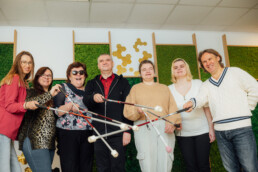
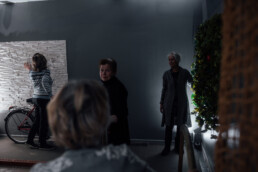
He founded the company, received his first Altum grant and, despite the covid pandemic time, “Neredzamā Pasaule” is now in its fifth year. During this time, he has received several more grants, various awards and, most importantly, encouraging reviews from all visitors. “It was such a turning point in life for me personally, and it has all gone well. It is my first business experience and, of course, we all learn from our mistakes, but it is good that I dared and actually opened this place,” says the entrepreneur.
Although he is visually impaired – he has been blind in one eye since birth – he has had no previous exposure to the world of the blind. “My parents brought me up as a normal child, without taking this disability into account. The only difference is that every year I had to go to the doctor to have my eyes checked. In the last years of school I had to change my glasses, and he said, ‘You can buy those glasses with your disability pension. How, please? What disability? It was a great miracle for us – for me and also for my mother. Yes, I knew that I had to protect my health, I had to protect my eye, but I didn’t have any big restrictions in that respect. Although nobody guaranteed me that the disease would not develop in the other eye. Thank God, everything is fine, it did not develop. But somewhere in my subconscious I was afraid that I might become blind. So, I guess you could say I’m still involved, even though I wasn’t in the blind community until this business,” says Maksims.
He only found out about the Latvian Society of the Blind when he was looking for staff. He started working with the society, and 14 people responded to the first job advertisement. Almost half of them had received a special training on how to lead a group, how to keep people’s attention, etc. Finding people to work is not a big problem – there are about 12 000 visually impaired or partially sighted people in Latvia, most of whom do not have a job. So, there is internal competition, but those who have got a job usually don’t want to lose it.
The company currently employs four people. The main selection principle is that the employee must be responsible and can be relied on, and must be willing to work and learn. In addition to Latvian, you also need to speak Russian at least at a conversational level; English is an advantage.
It is not easy to compete with other entertainment offers. “Like everyone else, you have to compete and find your place,” says Maksims, adding that he can’t complain about the attendance and the interest of the people. The museum is now also part of the Latvian cultural programme for schools, so pupils come in relatively large numbers. Companies organise team building events here.
The impact and contribution to society is easy to measure – just read the feedback from visitors. “They say it’s a great stereotype-breaker, they become more empathetic, they understand the problems of blind people better. Even some parents of blind people say afterwards – now we can understand much better how our child feels. I really like the way the schools are responding – the pupils understand not only how visually impaired people feel, but how anyone with mental or physical health problems feels. That makes me really happy,” says Maksims Mihejevs.
Creative Bread Laboratory "RaMaLa"
Creative Bread Laboratory “RaMaLa”, Ventspils
Innovative social rehabilitation service – bread therapy for victims of violence and people with special needs; café and catering services.
Lielais prospekts 48, Ventspils, LV-3601
+371 26480162
The social enterprise “RaMaLa” has brought to Latvia a perhaps less familiar form of therapy – Bread Therapy. It is a method of working that helps different people to create an atmosphere of trust and a feeling of home by baking and sharing bread together. It is also another way to help victims of violence, people with special needs or simply those who need to build their self-confidence and realise their worth.
“These values are very important in today’s society – the opportunity to be heard, to be appreciated, which is disappearing in today’s age of haste and stress, and people feel lonely, it is perhaps more difficult for them to get along with others, to prove themselves,” says Ruta Šenkevica, the owner of the Creative Bread Laboratory.
The idea comes from the “Bread House” in Bulgaria and was inspired by research on how people in different communities in different parts of the world use their time to cook together. It’s a wonderful way to bring people together and unite them, as everyone involved in the process becomes more open and honest. “RaMaLa” in Ventspils is now a full member of Bakers Without Borders, a network that works with this form of therapy all over the world.
“On an exchange visit to Bulgaria, together with the specialists of the crisis centre “Paspārne”, we discovered this form of therapy. It has very good results, and it’s here and now, because from the very first session, the person is very satisfied with what they have done and how they have done,” says Ruta. “Bread therapy builds self-confidence because it shows that I can do something, I can talk to others, I can express my opinion, I can do a range of different things, and it results in a smell and a taste – something you can feel immediately. I’m simplifying it a lot at the moment, but the idea is to help people who have problems with confidence and communication. In our case, we work with victims of violence, with people with special needs for therapeutic purposes, but it works for anyone who needs to build their self-confidence.”
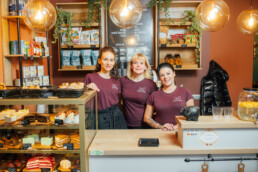
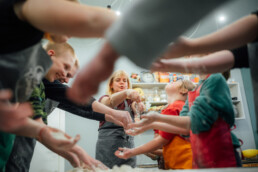
The method is also integrated into leisure activities for both children and adults. This generates income, which allows bread therapy to be provided free of charge to the target groups. Eight such free sessions can be provided per month – there is no possibility of offering more, as there is dedicated time for paid events that can cover the costs. The free groups are for both adults and children and are run by two organisations: the crisis centre “Paspārne”, which is also the founder of the social enterprise “RaMaLa” and helps victims of violence, and the day centre for people with special needs “Cimdiņš”.
“There are also special cases. For example, if a mum calls and says she wants to organise a birthday party for her child who has special needs, we always find a way to offer discounts, and there are discounts for independent clients too. We are very flexible – if it’s a client from our target group, then we give them the service on a slightly different basis,” explains Ruta.
In Bulgaria, this type of therapy works a lot with Syrian refugees, also with Romanians, with Roma people. “We saw how well it all worked, but we knew there was no money, because you also need the material basis for it, not just the knowledge. But we went, we studied, we took exams – it’s not that easy. Back in Latvia, we were looking for ways to implement this type of therapy service, and that was when the first support programme for social entrepreneurship opened, when we could apply for Altum grants. At that time we hadn’t yet set up a limited liability company, we had a crisis centre through which we applied for a grant. We were able to start our activity thanks to the grant of the crisis centre. We got funding for a year. We looked at the premises, renovated them so that we could also do business. Then, with the next grant, we set up a company, and we have been working as a limited liability company since 2020″, Ruta recalls the journey to the company that is working well today.
They are looking for staff with a background in pastry and cooking, but the classes are run by one person – Ruta herself, who is trained and qualified to do so. So, in principle, there are two different parts to the business. One is simply catering, the other is everything that goes on in the classroom, where there are therapeutic classes, entertainment workshops, bonding events and everything else that can be done to earn money to realise the social aims of the company. “RaMaLa” employs eight people at the moment, with additional staff in the summer season.
“We received our first grant as a work integration social enterprise. The employees were those who needed it – women who were long-term unemployed, Roma women. Not only did they learn how to bake the perfect cakes that everybody loves, but now they are working in other jobs. They have learnt what discipline is, what professional relations are, and so on. The fact that you see the results is probably what motivates you to keep going,” says Ruta.
“RaMaLa” could also compete as a regular café – the quality is good, customers have recognised it. There are companies that deliberately choose the services of this place year after year for its social purpose. But no one is resting on their achievements – various innovative ideas are also being brought to life. For example, we offer also cakes for pets.
“We had a little chef school for children and they expressed that they wanted to learn how to cook treats for their pets. So, we made cakes and biscuits for the dogs and cats, and the Ventspils Canisterapy team came and tested the treats. It is true that those who are working with people from difficult situations, all the closest partners are from different alternative therapies, methods e.g. canister therapy, reitherapy, pedagogical riding – we bring in as many different resources as possible to get a positive result in these rehabilitation services. Dogs are also one of our partners, hence these cakes for dogs,” says Ruta with a laugh.
The plans for the future are also clear – documents are being prepared and everything is being sorted out to create a franchise and bring this type of place to other cities. “There are already plans, business partners who are ready to try something in Riga. We have the ideas, but we lack the funding at the moment, so we are waiting for the support programme to be able to go all the way,” says Ruta. If “RaMaLa” becomes a success in Riga, then perhaps other cities could be considered.
“Both the association (crisis centre) and the social enterprise are my creation, they are my ‘children’, and I see the good sides when both of these places work well. You can bring so much positivity to people! At the end of the session, there is a moment when they take the towels off the covered bread… You can’t describe it – the feeling, the energy that comes when the children see that they have done so well, that everything smells like warm bread! I guess that’s what motivates me – that moment,” says Ruta Šenkevica.
Initially, Ruta set up a crisis centre because there was no such thing in Ventspils – people could not get all the help they needed in one place. “I used to work for a human rights support network that was active all over Latvia. The programme was coordinated by Rūta Dimanta and the NGO Centre in Riga. Together with Rūta and other people from different regions, we created this network and talked about everyone’s rights and what they were entitled to. It was a crazy time twenty years ago – resources in Latvia were very scarce and NGOs were the ones who could give people hope and support. At that time, the idea came up that there should be a crisis centre in Ventspils. Through this support programme I helped young mothers who, for example, had nowhere to live because they had a violent husband who was chasing them out of the house. That’s how it all came together and the crisis centre was created,” Ruta recalls the beginning of her work. Gradually it became clear that more needed to be done, because the crisis centre was selling a service to the state, and the state was not prepared to pay for a broad basket of services. Trying to find more money led to this business idea.
Social enterprise "Difftravel"
“Diffravel”, Riga
Adapted tourist services and transport providing a full travel service for people with hearing, visual or mobility impairments or reduced mobility.
Graudu iela 68A, Rīga, LV-1058
+371 24888028
Travelling is no longer an exclusive activity, but still not everyone has access to it. That is the reason why the social enterprise Difftravel was created – to provide transport services and tourism opportunities for people with various disabilities or reduced mobility. And to do it in a way that will leave them with fond memories long after the trip – a sort of emotional therapy.
It all started with small trips around Latvia, but now Difftravel organises trips to European countries as well, and plans to develop it more and more. Santa Beitāne, the company’s CEO, emphasises that this is a slow-growing but sustainable business niche with great potential. “This will be our third season, but we haven’t really stopped over the winter either – we’ve been going to warmer places. In the autumn, when the local season ended, we went to Germany, we had Christmas in Prague, then we visited Cyprus and at the end of April we were in Switzerland. And then the local season starts again,” says Santa.
Difftravel differs from a regular tour operator because it adapts the trip plan to its clients needs – knowing that these travellers will not be able to move quickly and will each have their own specific needs, travelling in small groups (no larger than 30 people) and making sure that everyone is comfortable throughout the trip.
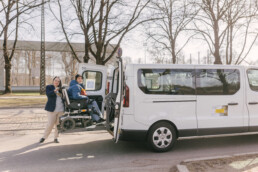
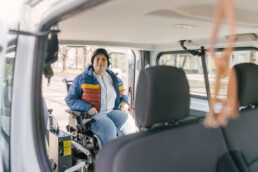
“Difftravel is part of Mobilizing, a social enterprise that offers driving lessons for people with hearing impairments. The desire to help people who are deprived of something because of their health was rooted in my childhood, when I had to undergo treatment for a pulmonary tuberculosis infection and spent a long time in various sanatoriums and medical institutions,” says Santa Beitāne.
But how did the idea for such a special tour company come about? “I wanted to do this for a very, very long time. I think it was 2008 or 2010, but there was absolutely no infrastructure for it in Latvia at that time, and I couldn’t do it alone. The support organisation for people with disabilities “Apeirons” has done a lot in terms of accessibility, a lot has been achieved and improved, and the general perception is slowly changing. However, compared to other European countries, there is still a lot to do. There, for example, accessibility is available even very, very high up in the mountains, where the conditions are supposedly difficult. We still have room for improvement here in Latvia, but we can also see improvements,” says Santa Beitāne.
The choice of trip routes and destinations in Latvia is therefore based on the principle of roughly defining the destination and then assessing which attractions, places of interest or interesting businesses are available along the way. After that, it is a matter of contacting and checking whether, for example, a wheelchair user will be able to get to the chosen point and enjoy the offer. The websites of municipalities and tourist centres are also a good help.
Travelling to other countries is much more complicated. It all starts with booking hotels, which is a lot of work as availability is not always sufficient. “The word ‘accessible room’ does not mean that everything is really adapted. Many people think that if a wheelchair can fit through the door, it’s accessible for disabled people. So you have to get in touch and ask for details: do the toilet have handrails, does the shower have a grab bar, how wide is the door, how high is the bed…,” says Santa. Reservations often need to be changed, and transport availability needs to be thought of right away. For example, when organising a trip to Switzerland, Santa left earlier so that she could bring the bus all the way across Germany to Switzerland and leave it at the airport. Then she flew back to Latvia and joined the group so that she could have the journey from the airport in her own vehicle.
To find the best routes, the Difftravel manager also sometimes does research trips. Artificial intelligence is also a good help, as it can roughly create a route by suggesting stops at a glance: “It does not prepare the precise information. It just provides me some clues, but then I need to check everything.”
Most of the time Santa organises everything on her own, but she gets a lot of help from Aivars Krūzmētra, a board member of the People with disabilities’ Association “Aizvējš”. “I also have Aivars. He has a very sharp mind, he has a disability himself, but his mind – hats off! I make a plan, give it to him and ask him to check and get back to me if anything is wrong! He looks at everything very carefully, notices what I’ve forgotten,” says Santa, grateful for the help.
Without grant support, social entrepreneurship would struggle to survive, as the cost of providing a trip is higher than for a normal tour operator. One of the reason is because the trips are organised in relatively small groups. “It’s not a 40 or 50-seater bus, where all the costs are then spread out,” explains Santa.
She is determined to get another bus in the near future, which has already been reserved. A second driver is also needed to expand the operation. “At the moment I use family members, whom I don’t pay anything, but how long can I do that? This is just a solution for now, I need a second driver who will be paid as an employee,” says the Difftravel manager.
It’s already in the future plans, and Santa is very clear. “I definitely want to develop the specialised vehicle service. Where is the problem? At the moment, if more people with disabilities come to Latvia – even athletes or participants in major events – no one can provide [them with adequate transport]. For example, I was recently asked – can you transport 100 wheelchair tennis players to Valmiera? I would like to do that, I want to develop this specialised vehicle service. And then the next stage – when I’m done with this, I really want to set up a campsite for people with disabilities to host international events. I will not give that up. As long as there is no war in Latvia, I will do it!” Santa Beitāne is determined.
Social enterprise "Barboleta"
“Barboleta”, Jelgava
Learning on the move!
A balance platform as an innovative and efficient tool for focusing attention, motivation, recalling of information and boosting energy in work and learning process. Balance platforms are products for individual use at home or work as well as for training.
Pasta iela 45, Jelgava, LV-3001
+371 29368746
Children who are restless, moving a lot, have poor attention spans, are shy or have low motivation to learn often need help in learning as well as interacting with others. Barboleta balance platforms can be integrated into learning process and are available as a method for professionals as well as an app for families. The method ensures that children have the opportunity to learn by engaging their motor coordination and balance.
“We calculated that if parents have bought this balance platform and it has been used for at least one year, then this activity with “professional” costs 80 cents per day. This is how children can learn multiplication table, foreign languages or reading,” says Baiba Blomniece – Jurāne, the author of the idea.
Moreover, although the method was originally developed for children, demand has grown rapidly and it is now also used for adults, both in rehabilitation centres and retirement homes.
Baiba Blomniece – Jurāne came up with the idea to develop this method and the balance board after thinking about the impact of movement coordination and balance on child’s development and communication. Gradually integrating what she read in various studies and trying out a practical method in her own experience, Baiba started to use it in her work and other specialists became interested in the method. This is how the idea from her own practise grew to a social enterprise.
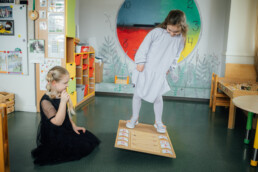
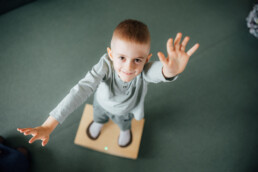
“Working as a clinical psychologist and educational psychologist in schools, I look for ways to make it easier for children to learn. I was also a special educator and provided help with learning. I started to involve motor coordination. I had studied many types of therapies and realised that we could stimulate the brain with movement,” says Baiba, recalling the creation of the method.
Initially, the team consisted of three specialists, who were taking the appointments for children also from other schools. That was a costly service for parents, says the founder. But the results were good, it helped children learn better. “We realised that parents were even taking out loans to pay for these classes. We felt uncomfortable as we were trying to help but at the same time it took so much from the families, so we decided to look for a solution and found out about social entrepreneurship. Our aim was to generate enough revenue through the sale of balance platforms to be able to help children in need. We succeeded in doing this, we established both a development centre and a kindergarten,” says Baiba Blomniece – Jurāne.
Thanks to Altum grant in social entrepreneurship, both the development centre and the “Barboleta” Smart Platform that works in conjunction with the app have been created. To make this innovative tool accessible to a wider audience, a Barboleta shop was set up. The app has been designed to make it easier for families and parents to use it at home instead of a lesson with a special educator, thus saving money.
Specialists, teachers, speech therapists and psychologists have training about the method, what it is based on and how to create tasks for the pupils so that the specialists can integrate and use their own materials. “I am teaching the technical part on how to use the balance platforms, and then each expert can use them according to their profession. If it’s a physiotherapist, they use them according to their needs, an occupational therapist, a social educator according to their own requirements. I don’t know everything, I just know what to do with the balance platform,” explains Baiba.
The social enterprise had gradually grown to 30 employees, a development centre and a kindergarten based on the Barboleta method. Baiba Blomniece – Jurāne was its founder, but now she was ready for changes. “Since 1st of November last year, I am working alone in the social enterprise, as I decided to focus exclusively on the development of the balance platform methodology,” says Baiba.
The establishment of the social enterprise has allowed us to help more children, to offer the method to a wider range of people, and currently around 400 teachers from different schools across Latvia are using the Barboleta platform in their work with children.
“Now that I am concentrating only on balance platforms, the goal is to develop the app, to develop wider accessibility so that more and more people can apply the method. At the moment the app is created for children aged 3 to 9-10, but I plan to expand it. All profits will be invested in creating an accessible product for a wider range of customers,” concludes Baiba Blomniece – Jurāne, optimistic about the future.
Social enterprise "Dzīves oāze"
“Dzīves oāze” (Oasis of Life), Riga
Group flat for people with mental disabilities, day care centre for people with dementia, family assistant services, father support groups.
The social enterprise “Dzīves oāze” offers a wide range of services to help seniors with dementia, people with mental disabilities, as well as families and especially fathers. For several years now, it has been run by Jānis Broks, who joined the care centre, which was on the verge of bankruptcy, in 2019. Since then, work has been completely reorganised and restructured, staff has been carefully selected, and attitudes towards clients have changed.
Intensive work is currently being done to develop the family assistant service and support groups for fathers. “I am particularly interested in this. I have developed and run a programme for another organisation before, and this is the second year we have been setting these groups,” says Jānis, proud of his work.
The support groups for fathers are organised in a series of eight sessions, which aim to educate and equip fathers with new skills, as well as to support them with practical tasks, encouraging them to believe in themselves. For some, the group provides support during divorce, helping them to learn how to organise their time, how to cooperate with the child’s mother and how to maintain the relationship with the child. Within the group, fathers learn to share and talk about different difficulties and solutions. “They open up and when there is a break between the sessions, they start discussing not only fishing and cars, but also children and issues they can solve. The programme is very simple on the one hand, but on the other hand it is built in such a way that the fathers discover their own resource, share their knowledge with each other,” says Jānis.
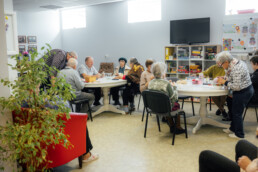
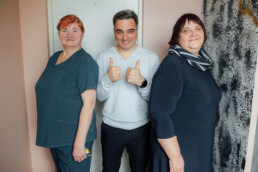
But the longest running of the centre’s two activities is a day centre for adults with dementia and a group flat for people with mental disabilities.
Day centre clients receive developmental and recreational activities, care during the day and they can return home in the evening. Clients who are attending the day centre have different levels of dementia, and for some it is their only chance to socialise. “On the other hand, it is also an opportunity for family members to stay socially active, as their loved ones are looked after, cared for and receive support that help them to remain functional,” says the company’s CEO. Currently, the centre can accommodate 20-25 people per day.
A group apartment is for people who have the capacity to take care of themselves but have difficulty living on their own because of mental disabilities. “Our job is to keep them active and social, not to let them get lazy,” explains Jānis Broks. They need help with things like budgeting, reminders, support and encouragement. Currently, 16 people live in the group flat, all of whom receive a pension, but many are also able to work. “A group flat is like one step. There are people who will always stay in a group flat, but there are many who are just initially either afraid or discouraged, or lacking the skills to be independent – we can help them get back on their feet. One of the most important things is that they find a job, that they stick to it and that it is a supportive environment. So, we look for employers who are open and willing to accept that this is a person with a disability,” says Jānis. So far, however, there are not many such opportunities on the Latvian labour market.
As for the day-to-day management of the centre, each service has its own team dedicated to one area, currently 15 people are employed.
The first year after joining the company was very hard and intense, but almost immediately the centre became a social enterprise. This seemed natural, as Jānis had previously been interested in this type of business. “It was on my radar and very much in line with how I see and do it. Initially, I didn’t even think about applying for grants and funding, it was more of an ideological, philosophical direction,” says Jānis Broks.
Social care has also been close to his heart for a long time. A psychologist by training, he also worked in schools, but when he found himself in a crisis centre, he immediately felt at home. “And at some point, I realised that I could work not just with one person at a time, but with a team. That’s when I started to think of myself as a manager,” says Jānis.
As for the future, he stresses that social services are always underfunded, and their providers are closely linked to local authorities. But “Dzīves oāze” aims to become more independent in this respect. “We want to develop the service ourselves and reach out to potential clients, because this is a very big problem, but very few people talk about it.”
Support House "Brīvupes"
Support House “Brīvupes” in Latgale, Balvi region
Family and child support services – Canisterapy, Montessori classes and other rehabilitation and developmental services not available in the immediate area.
Brīvupes Tutinava, Balvi, Kubulu parish, LV-4501
+371 28330904
Canisterapy, Montessori pedagogy, warm grain classes, audiologist and even a bed with vibroacoustic massage. Support House “Brīvupes” in Latgale brings all this together in one place, providing rehabilitation services and development-enhancing activities for children from different social groups, as well as their parents. The idea behind such a wide offer is simple – to bring the children to a pleasant place where they can participate in various activities in a familiar environment, changing only the specialists who work with them.
There’s also a guesthouse-like lounge, that you can book on Booking.com, for mums and dads to relax while their child is in class, or simply to recharge for a fresh start.
Ingrīda Supe, the manager of the social enterprise, admits that she would like the offer to be even wider, because each new case complements the previous one, allowing them to provide more and more comprehensive help to everyone who has found their way to “Brīvupes” in their particular situation. Thus, an audiologist has already come to “Brīvupes”, and now a music therapist is also being sought.
The plan is to develop support for parents who are often simply very tired from everyday stressful situations. With that in mind, for example, a specific bed has just been purchased, which, based on the principles of vibroacoustic massage, helps to relax and regain balance. Adults have a variety of workshops and masterclasses to participate such as gong meditation, there is enough of space for events and interest groups to share experiences, support each other and realise that they are not alone in their child’s problems. Ingrīda is also currently conducting a study on the benefits for parents of helping their child to develop.
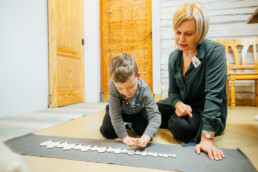
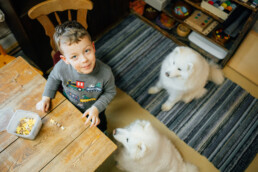
But it all started with canisterapy, or more precisely – Samoyeds. 15 years ago, it was love at first sight for Ingrīda – when she saw a dog of this breed, she knew immediately that if she ever had a dog in her life, it would be one like this. For the next seven years, Ingrīda spent dreaming and researching everything she could about the breed. And the more she read, the more she realised that for a dog to be happy, it also needs a job. Samoyeds proved to be suitable for canisterapy, and the idea clicked – it resonated with Ingrīda’s own feelings that a dog should not be selfishly kept to herself but shared to help others.
Now Dora is eight years old, she actively participates in the classes, helping children together with Ingrīda, and has welcomed a colleague – Sani, who now works at “Brīvupes”.
Nothing happens according to the same pattern – each clients’ problem is very different, solutions and approaches are different too, so Ingrīda is always learning, finding something new. She has also gained experience – in helping children with autism spectrum disorders, selective mutism, etc.
Ingrīda has a teaching background and has worked in a library for a long time. After learning canisterapy, she gradually became a full-time worker in her own enterprise and does not regret this choice for a moment. In addition, her previous education has now proved to be a very useful basis for further studies – she has also studied Montessori pedagogy and is currently studying social rehabilitation.
She came up with the idea of starting her own business when she realised that she needed a base, and her family home turned out to be ideal for this purpose, as well as cleaning up and restoring another “corner” of Latgale.
When asked about her plans for the future, Ingrīda says: “Ideas come naturally, the main thing is to let them mature.”
Working in a health centre as a canisterapy specialist would certainly be easier than building your own business from scratch – it takes courage, and in this case it could not be undertaken by someone who is just crunching numbers. She has travelled to Cēsis and Alūksne to work as a specialist, and it would have been more cost-effective for her to build her own business in the city, but the peaceful environment is also important in “Brīvupes”, which is healing in itself, and it would have been impossible to create one in a more populated area. This is also one of the reasons for the social enterprise status, as there are no equivalent services elsewhere in the region.
“I work with a sense of mission, purpose and overarching goal. This place has a social purpose – so parents can get services closer to where they live. Our people deserve a place like this, so they don’t have to travel a hundred kilometres, spend a whole day on the road. They deserve it to be closer!
I even had a situation where two children came in and said quietly: “You know what I like best? When you come in here, it smells like this!” Then I realised that I have done everything to make sure that the children here are healed not only by the classes, but also by the environment.”
The social enterprise status gave a good start for setting up the support house, filling it with content, which was important to Ingrīda – so that the children would immediately have materials to work with. But now Ingrīda also appreciates being part of the social enterprise community in another way – it is very satisfying to know that she can work with others who are involved in business for different social causes. “It immediately feels like it’s your own!” Ingrīda emphasises and admits that, of course, a social enterprise has to be able to make a profit, but without such a social cause she would not be able to work. Also, the example of other companies helps to overcome difficulties, because you can see that someone has managed with a similar goal, continues to work and has proved that it can be sustainable.
How to improve social entrepreneurship ecosystem in Zemgale and Northern Lithuania?
The Social Entrepreneurship Association of Latvia, together with the Zemgale Planning Region, Rokiškis District Municipality, and the Lithuanian Social Business Association, is embarking on the project “Improving the Social Entrepreneurship Ecosystem in Zemgale and Northern Lithuania” (RE:IMPACT) in response to this question.
The role of social entrepreneurs in the Baltic region is becoming increasingly significant in the fight against various societal issues. The Covid-19 pandemic, war in Ukraine, rising prices, and inflation have demonstrated the importance of societal engagement, inclusivity, innovative solutions, and various approaches to addressing these challenges. In such a situation, regional support is particularly crucial because local leaders are the ones who recognize the potential opportunities for utilizing innovative solutions.
Often, national and municipal authorities do not realize possible forms of support for collaboration with social enterprises, and sometimes there is a lack of understanding and motivation to establish such partnerships. According to the European Social Entrepreneurship Survey (2021), the majority of Latvian residents perceive political support for social entrepreneurship as low (25.6%) or even very low (25.6%). Similar results were obtained in Lithuania as well.
Despite Social Entrepreneurship Association of Latvia working closely with various public sector stakeholders, there is still a weak understanding of social innovations, social entrepreneurs, their work, and impact. According to the BRESE report, many social entrepreneurs lack business skills. In both Latvia and Lithuania, the majority of social enterprises have emerged from the non-profit sector and are newcomers to the business sphere. Moreover, the growth of social enterprises is influenced by the size of the national market. This can be particularly observed in areas outside the capital, such as remote districts of Zemgale.
To change the current situation, the goal of the “RE:IMPACT” project is to improve the environment for social entrepreneurship at the regional level – in this project, focusing specifically on Zemgale region and Northern Lithuania. Project partners will promote public sector participation, support measures for social entrepreneurs, develop educational materials for teachers, and inform wider public about social entrepreneurship in general and good regional examples of social entrepreneurs. By doing so, the capacity of social entrepreneurs will increase, which will positively impact local communities on a broader scale.
During the project, it is planned to: identify, map, and assess potential areas for the development of social enterprises; analyze and compare the needs of social enterprises in the Zemgale region and Northern Lithuania; develop practical educational materials on social entrepreneurship for schools and business centers, as well as strengthen the skills of social entrepreneurs and organize experience exchanges.
To achieve these goals, the project is divided into three different stages, each of which will accomplish one of the project’s objectives through various activities.
In the first stage, the status of existing and potential social enterprises will be researched, and educational materials and guidelines will be developed. In the second stage, exchange visits for both social entrepreneurs and public sector representatives will take place, during which participants from Latvia and Lithuania will get to know each other, share their experiences, and learn from each other’s mistakes and success stories to apply the newly gained knowledge in their daily lives. In the final, or third stage, social enterprise stories will be promoted, and an information campaign for the wider public will be conducted.
Currently, we have started actively identifying organizations and individuals working for the common good in the municipalities of Zemgale – Aizkraukle, Dobele, Bauska, Jelgava, Jēkabpils districts, and Jelgava city.
If you know people or organizations implementing activities for the common good in Zemgale, please contact us! Write to or !
The total funding for the project is EUR 595,286. 00. The co-financing of the project from the European Regional Development Fund is EUR 476,228.80. The project implementation period is until January 31, 2026.
For more details about the project, you can visit HERE.
—————————
This publication is prepared with the financial support of the European Union. The content is solely the responsibility of the Social Entrepreneurship Association of Latvia, a partner of the project “Improving the Social Entrepreneurship Ecosystem in Zemgale and Northern Lithuania”, and does not necessarily reflect the official opinion of the European Union.
